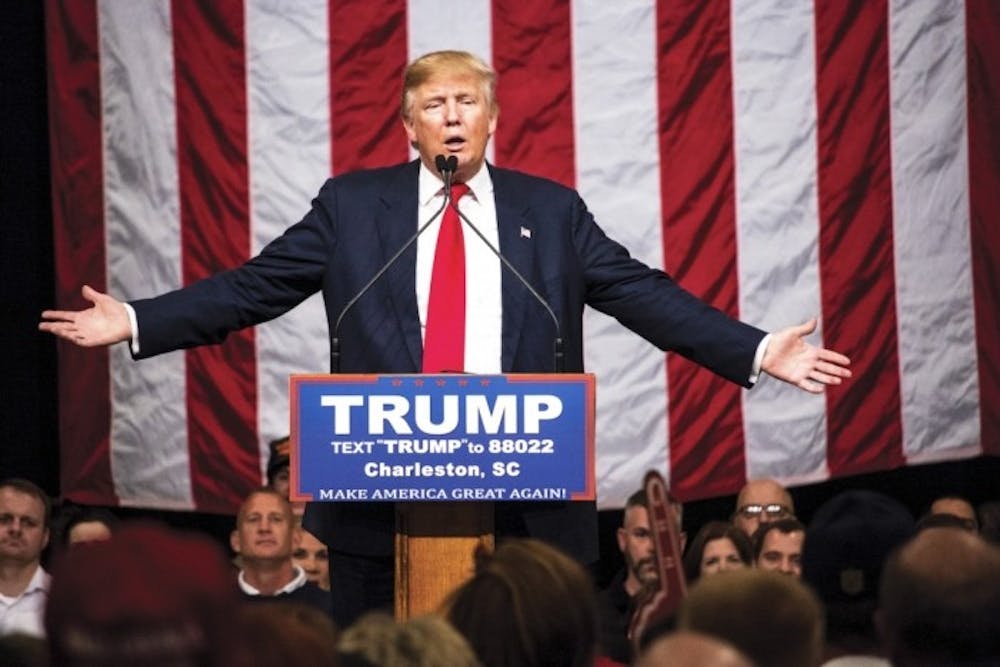
Once President Trump announced that the United States would withdraw from the Paris Agreement on Thursday, various business leaders and university leaders expressed their outrage and concern at the decision. Penn has yet to comment on the issue.
"For me, it was a mixture of being unsurprised, but also feeling very scared and disappointed," outgoing Co-Chair of the Student Sustainability Association at Penn and rising College senior Johanna Matt-Navaro said. "It feels almost like [we're] doomed."
The accord, a commitment to mitigate global warming signed by 195 countries, is considered one of the most important legacies of the Obama administration. Various leaders, from heads of state to top researchers and industry leaders, have condemned Trump's decision to end the United States' participation in the agreement, even while Trump has defended his decision as necessary to defend the livelihood of American workers.
"I was elected to defend the citizens of Pittsburgh, not Paris," he said in a speech announcing his decision Thursday.
Tesla CEO and 1997 College and Wharton graduate Elon Musk, along with Disney CEO Robert Iger, both quit Trump's business advisory councils in response to the withdrawal.
Am departing presidential councils. Climate change is real. Leaving Paris is not good for America or the world.
— Elon Musk (@elonmusk) June 1, 2017
As a matter of principle, I've resigned from the President's Council over the #ParisAgreement withdrawal.— Robert Iger (@RobertIger) June 1, 2017
Penn has taken steps in recent years to address the impact of climate change, but students say the University can do more.
In 2009, Penn unveiled a climate action plan and became the first Ivy League signatory to the American College and University Presidents Climate Commitment. In 2014, Penn President Amy Gutmann renewed this commitment to the environment with a Climate Action Plan 2.0.
Penn students have also been active in campaigning for sustainability, most recently through the Fossil Free Penn initiative which has continued to call on the University to divest its endowment from investments in fossil fuel companies. The Board of Trustees rejected a proposal from FFP to divest in September 2016.
At a conference hosted by The New York Times last week, Gutmann said Penn would continue to "speak out against powerful political people who put out policies that would be against our core mission."
She cited the example of Trump's travel ban implemented earlier this year, which marked the first — and so far, only — time that Gutmann directly criticized the president, calling the 1968 Wharton graduate's policies “injurious to our work and inimical to our values.”
Despite the Penn community's strong support for sustainability — close to 90 percent of the student body voted to divest in a non-binding referendum conducted in spring 2015 — University spokesperson Stephen McCarthy said in an email the administration does not have any comment on Trump's withdrawal from the Paris agreement.
Students think they should.
"It's important now for the University to communicate their continuing commitment to environmental stewardship," Matt-Navaro said.
More than 80 university presidents have signed a plan pledging to meet the U.S. greenhouse gas emissions targets under the Paris climate accord, The New York Times reported on June 1. MacCarthy said Gutmann was not one of the signees.
"It does not appear that we (or other Ivy Plus members) were approached," he said in an email.
Matt-Navaro believes it would be meaningful for Gutmann to sign the pledge.
"It would be a really powerful message to send, particularly as Trump’s alma mater," Matt-Navaro said. "It would be admirable for Penn to commit themselves to doing that.”
The Daily Pennsylvanian is an independent, student-run newspaper. Please consider making a donation to support the coverage that shapes the University. Your generosity ensures a future of strong journalism at Penn.
Donate







